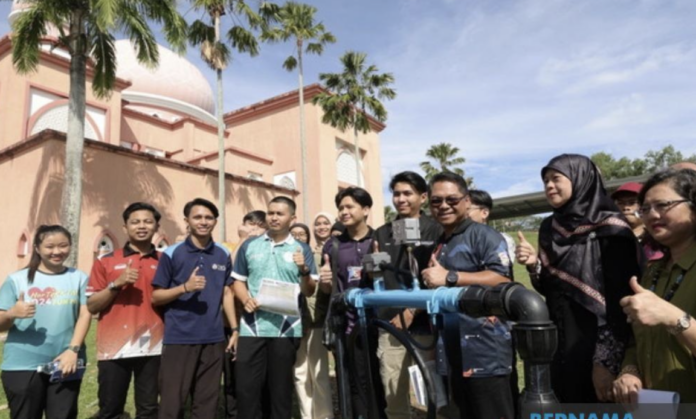KOTA KINABALU, June 9 – The construction of six tube wells at Universiti Malaysia Sabah (UMS) has been fully completed, and will serve as an alternative to address the issue of water supply disruption at the university, said Deputy Higher Education Minister Datuk Mustapha Sakmud.
He said the construction of tube wells used an allocation of RM3 million from the Prime Minister’s Office and admitted that the project was delayed due to some changes, especially in the design aspect.
“However, I would like to announce that all six tube wells are fully completed. I would also like to emphasise that this is only as an alternative if the water source from the Sabah Water Department (JANS) experiences disruption.
“If the water supply from JANS is insufficient, then the tube wells will be used. The concept is the same as a generator. When the electricity supply is cut off, the generator will be used,” he told reporters, after inspecting the UMS tube well project on Sunday.
Mustapha said the six tube wells are capable of producing up to one million litres of water a day, and according to him, several tanks have also been installed around the residences, to store supplies.
The Sepanggar Member of Parliament added that the issue of water supply disruption at UMS has been going on for quite some time, following the rapid development in the surrounding area, including the construction of the Pan Borneo Highway, in addition to the water capacity at the Telibong and Moyog water treatment plants not increasing, which caused the problem to worsen.
“However, we are trying to ensure that the water supply is sufficient, because we do not want the students to be distrupted, especially at exam time,” he said, adding that the ministry always interacted with JANS in an effort to address the water supply issue in the area.
Mustapha also proposed that UMS hold an engagement session with its students, as a platform to channel accurate information related to the issue.
UMS water supply needs are very high, at between three and five million litres per day, with a total of 20,000 users, including 16,000 students.
















